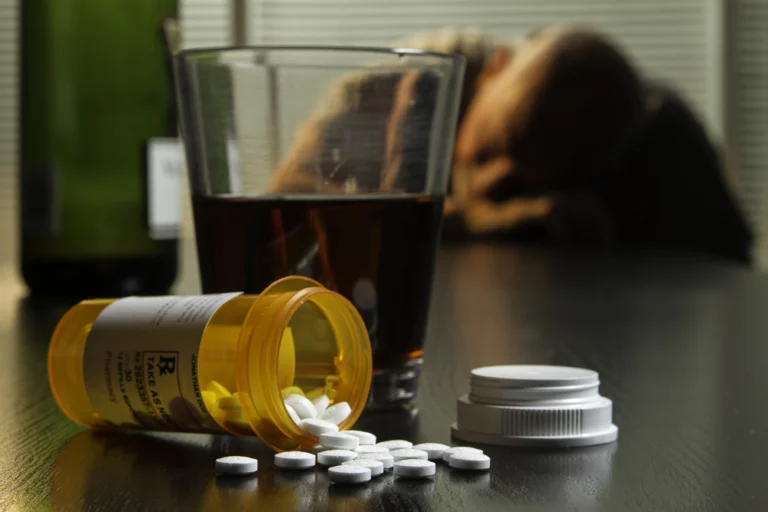Understanding The Connection Between Addiction And Mental Health
The relationship between mental health and addiction are closely intertwined and can often feed into each other. Substance abuse can cause or exacerbate mental health issues, and mental health disorders can lead to substance abuse as a form of self-medication. Understanding the connection between addiction and mental health is essential to treat both conditions effectively.
How Addiction Affects Mental Health
Addiction can cause various mental health problems, including depression, anxiety, paranoia, and psychosis. When a person becomes dependent on drugs or alcohol, their brain chemistry changes, which can alter their mood and behavior. Long-term alcohol or drug use can damage the brain, leading to memory loss, cognitive impairment, and other neurological problems.
Addiction can also exacerbate preexisting mental health conditions. Individuals with depression, anxiety, bipolar disorder, or schizophrenia may use drugs or alcohol to cope with their symptoms. However, substance abuse can worsen these disorders and make it harder to manage them effectively.

How Mental Health Affects Addiction
Mental health disorders can lead to addiction, as individuals may use drugs or alcohol to self-medicate. For example, people with social anxiety disorders may turn to alcohol to help them feel more comfortable in social situations. However, this can quickly escalate to dependence and addiction, worsening their anxiety and other mental health issues.
Some mental health disorders, such as depression, can also reduce a person’s motivation and pleasure, making them more likely to turn to drugs or alcohol to feel better. Substance abuse can temporarily relieve mental health symptoms but ultimately worsens them, leading to a vicious cycle of addiction and mental health problems.
Integrated Treatment for Addiction and Mental Health
Treating addiction and mental health disorders requires an integrated approach that addresses both conditions simultaneously. Individuals with addiction and mental health issues often require medical detoxification and medication-assisted treatment to manage withdrawal symptoms and cravings.
Behavioral therapies, such as cognitive-behavioral and dialectical behavior therapy, are also effective in treating addiction and mental health disorders. These therapies can help individuals identify and manage triggers for substance abuse and develop coping strategies for managing mental health symptoms.

The Stigma Surrounding Addiction and Mental Health
Despite progress in understanding addiction and mental health, there is still a significant stigma surrounding these issues. Stigma refers to people’s negative attitudes, beliefs, and stereotypes about individuals who struggle with addiction and mental health disorders. This stigma can be a significant barrier to treatment and recovery for those affected.
The Origins of Stigma
The stigma surrounding addiction and mental health disorders can be traced to various factors, including cultural beliefs, misconceptions about addiction and mental health, and historical events. In some cultures, addiction and mental health disorders are viewed as a personal weakness or moral failing, leading to blame and shame directed towards the individual struggling with these issues.
The Impact of Stigma
Stigma can have a significant impact on individuals who are struggling with addiction and mental health disorders. It can lead to feelings of shame, guilt, and isolation, making it difficult for individuals to seek treatment and support. Stigma can also lead to employment, housing, and healthcare discrimination, further exacerbating the challenges faced by individuals with addiction and mental health disorders.
Breaking Down Stigma
Breaking down the stigma surrounding addiction and mental health requires a multifaceted approach. Education is critical to this approach, as it can help dispel myths and misconceptions about addiction and mental health disorders. It is also essential to promote empathy and understanding toward individuals who are struggling with these issues.
Individuals struggling with addiction and mental health disorders can also help break down stigma by sharing their stories and experiences. It can help humanize these issues and reduce the associated stigma. Advocacy and activism can also effectively challenge stigma and promote change.

Contact Louisville Recovery Center
Addiction and mental health disorders are closely linked and can significantly impact a person’s well-being. It is crucial to understand the connection between the two and to seek integrated treatment that addresses both conditions simultaneously. If you or a loved one is struggling with a substance abuse problem or co-occurring disorder, reach out to Louisville Recovery Center. We are dedicated to providing comprehensive addiction treatment services that address the underlying causes of addiction, including mental health issues. Our team of experts is committed to helping individuals achieve lasting recovery and improved mental health.







